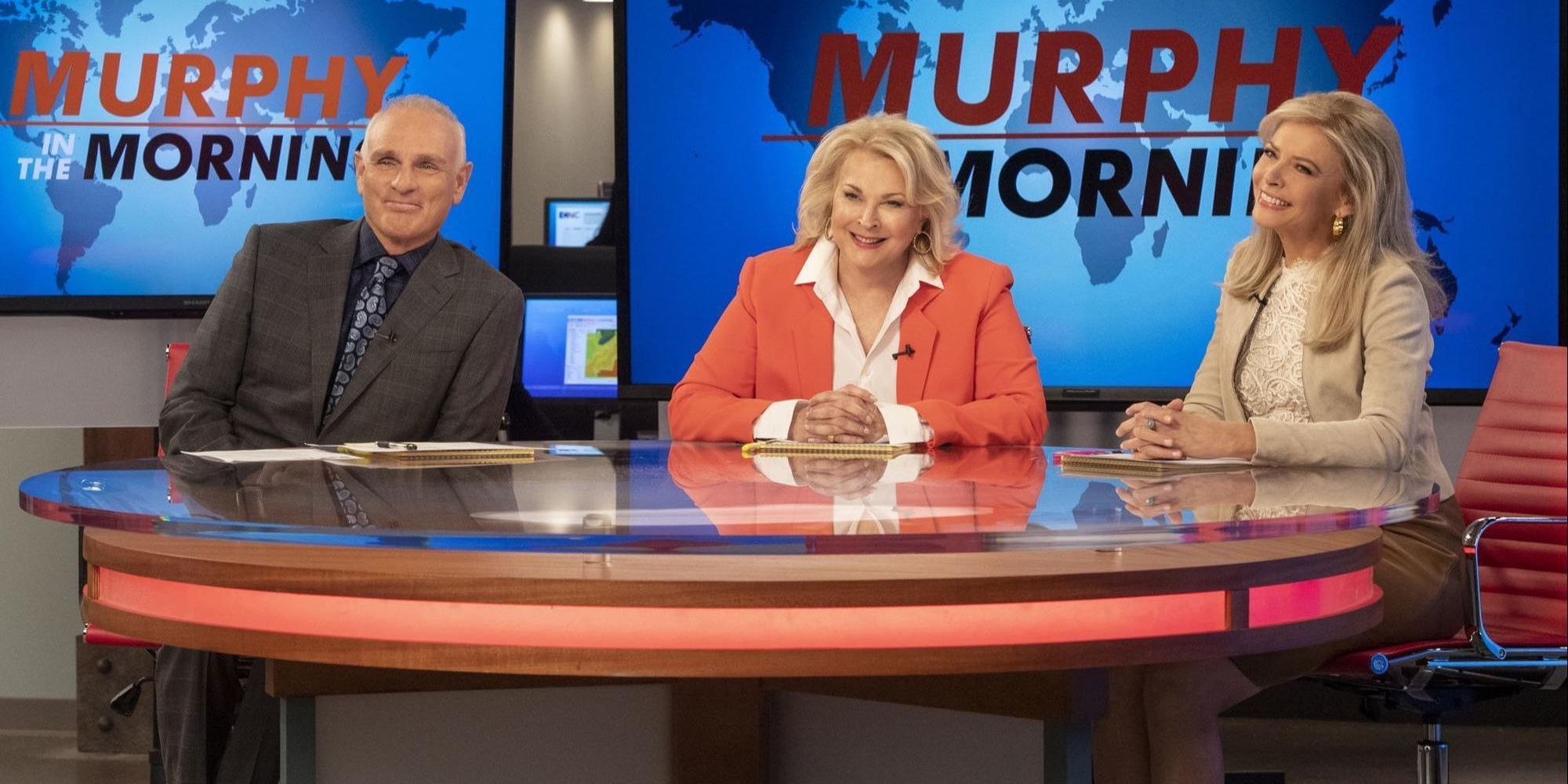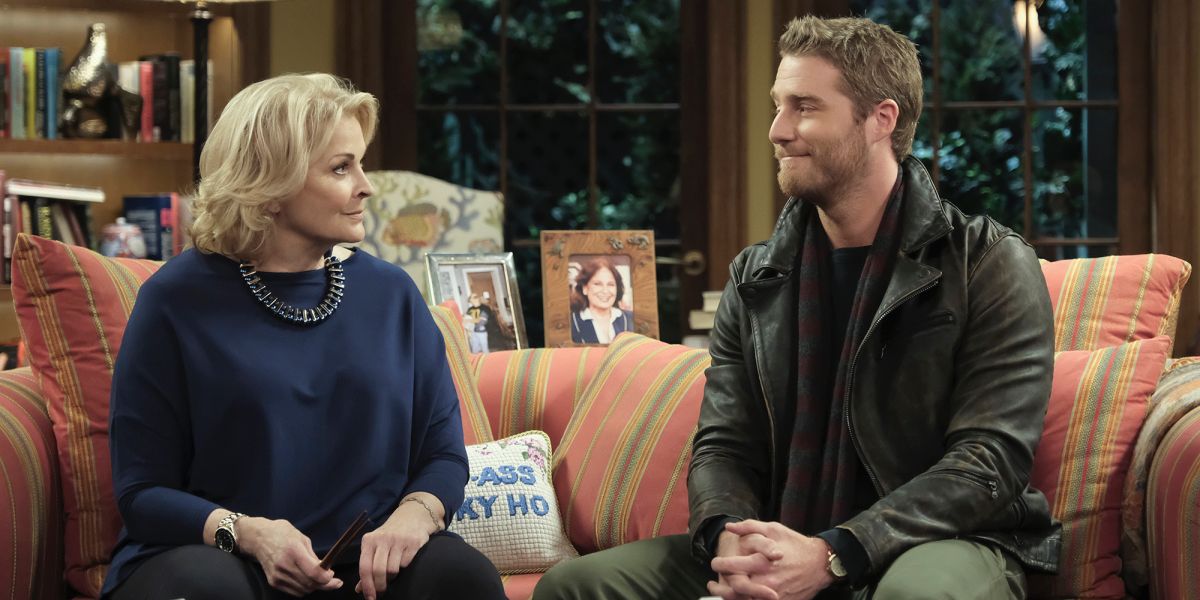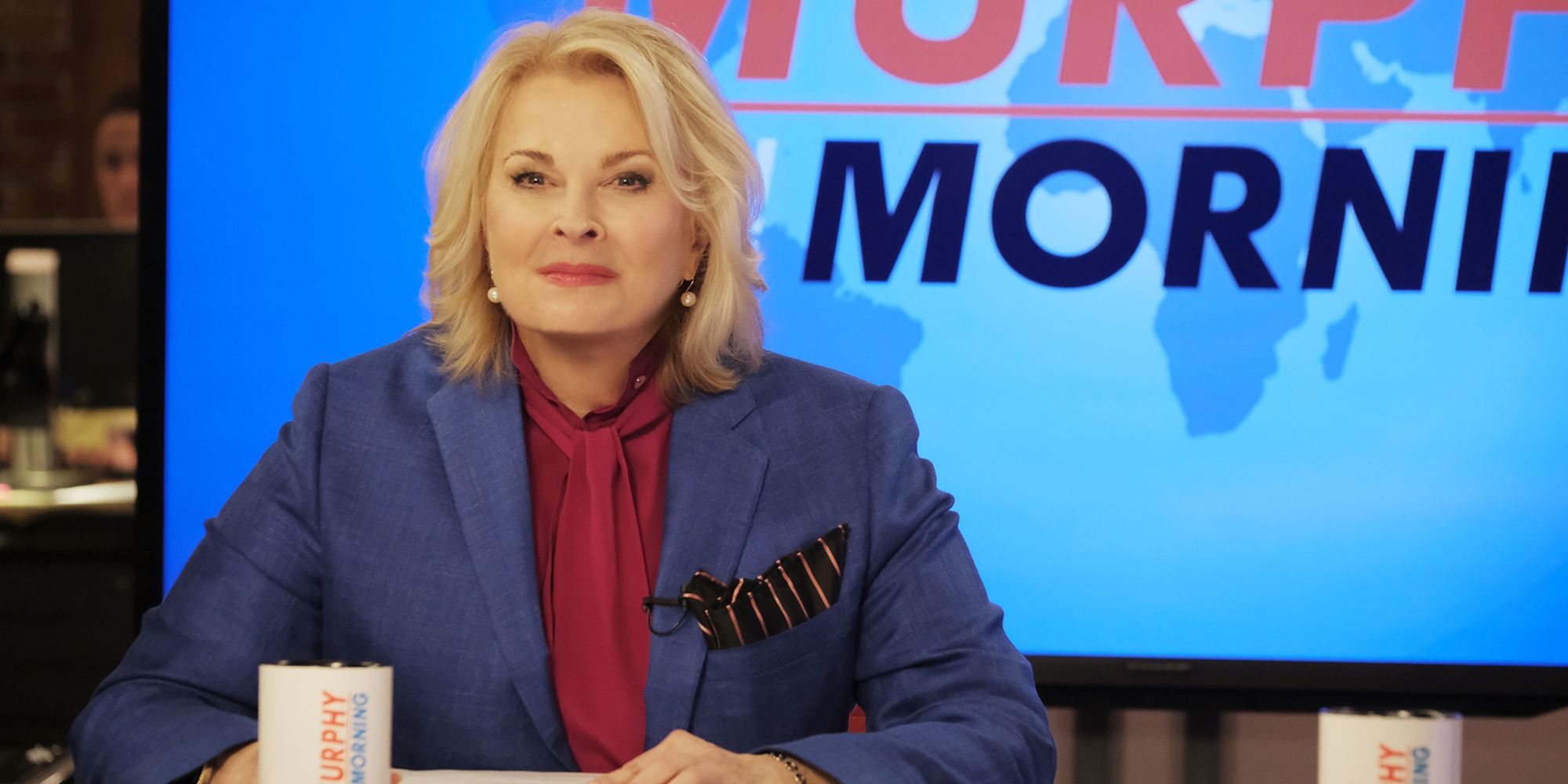As the recent wave of reboots and revivals go, the return of Murphy Brown to television feels propelled by a more distinct purpose than some of its fellow back-from-the-dead series, like Roseanne (now The Conners), Magnum P.I., or even NBC’s revived Will & Grace. It is the unlikely revival that nevertheless seems born of a particular moment — a political one — that, in its bumpy premiere, the show, which brings back Candice Bergen, along with almost all of the show’s original cast, proudly and loudly wears on its sleeve. This should come as absolutely no surprise to anyone. After all, this was the series that, at the height of its creative power and popularity, got into a verbal and very public sparring match with then-Vice President Dan Quayle.
To say that things haven’t changed much would be an understatement. The new series takes full advantage of the current political climate and state of cable news in this day and age of screaming television pundits, conspiracy theorists, social media outrage, and Twitter feuds — especially with a certain tweeter in the Oval Office — to comment on and lambast the country’s political divide, as well as the current administration. On one hand, seeing series creator Diane English and the rest of the series’ cast and crew take such a direct and partisan approach to the revival is impressive and admirable, not the least because doing so threatens to cut into the show’s ratings, but also because the approach feels unlikely given the network the series has returned to. While that means Murphy Brown likely won’t return to ratings like those enjoyed by ABC when Roseanne Barr made her brief return to television, at least this series isn’t confused about how its politics will mesh with those of its star.
More: A Million Little Things Review: ABC Takes On This Is Us With Weepy Relationship Drama
But while taking the direct approach makes the revival stand out even more than it already would have (people love a revival), that same approach takes a toll on the premiere and second episode, making Murphy’s return to TV — both on the show and in our reality — feel clumsy in a way that undercuts its early efforts. The premiere, in particular, falls victim to the show’s early ungainliness, in part because all the jokes aimed at Trump, the ramifications of the 2016 election, and the state of the news industry — the premiere is titled ‘Fake News’ after all — wind up being awkwardly wedged in with all the heavy lifting required to re-introduce the characters, their circumstances over the last 20 years, and why they’re getting the old gang back together for a cable news morning show called Murphy In the Morning.
The difficulty of those efforts are ostensibly doubled by the need to explain the addition of Tyne Daily as Phyllis, the sister of Phil, the late owner of Phil’s, the D.C. bar where the journalists like to hang out, and to set up the relationship between Murphy and her now-grown son Avery (Jake McDorman of the short-lived Limitless series on CBS). As it turns out, Avery has followed in his mother’s journalistic footsteps and has accepted a position at the Wolf Network — this show’s version of FOX News — as the sole liberal voice. As it turns out, Avery’s new show will compete directly with that of his mother’s.
This sets up an interesting dynamic to their relationship. It immediately brings Avery into the fold without doing what would be expected: having them be on the same show together, or at least working at the same network. That helps the show avoid engaging in the sort of embarrassing generational humor Avery seems built to be representative of. But rather than simply avoid the Millennial vs. Baby Boomer conflict altogether, Murphy Brown introduces a third new character, Pat (Nik Dodani), as the show’s head of social media. Pat’s introduced with a pair of Air Pods sticking out of his ears, which accentuates a painful joke about Murphy’s antiquated cell phone and her lack of a social media presence.
It’s plain to see where the show is going with its emphasis on the influence of social media and the purported influence of morning cable news programs over the president, whose Twitter feed makes an appearance late in episode as a way for Murphy to confront Trump. The move certainly announces the show’s arrival in no uncertain terms, but it also does so at the expense of its characters. As mentioned above, ‘Fake News’ is so absorbed with reestablishing everyone’s role — Frank Fontana (Joe Regalbuto) is teaching investigative journalism rather than practicing it; Corky Sherwood (Faith Ford) is recovering from losing her job as host of another morning show; and producer Miles Silverberg (Grant Shaud) has moved into the Watergate Hotel following a nervous breakdown after a stint producing The View — if never quite finds time to let it characters interact in a way that feels genuine.
Thankfully, by the time the series hits its third episode, Murphy Brown refrains from shoehorning political jokes into otherwise banal conversations, and instead allows the humor to develop from an actual political situation. The jokes feel more points and appropriate to the circumstances as a result.
Though it’s a bumpy ride for the first few episodes, Murphy Brown delivers an energetic return that feels galvanized by the world it’s compelled to comment on. Similarly, Bergen and the rest of the cast are in top form, and once the revival gets past its first awkward steps, the audience will begin to see what made the show a hit in the first place, and why, after all these years, it came back.
Next: Single Parents Review: ABC Tries Its Hand At New Girl-Style Comedy
Murphy Brown continues next Thursday with ‘I (Don’t) Heart Huckabee’ @9:30pm on CBS.



